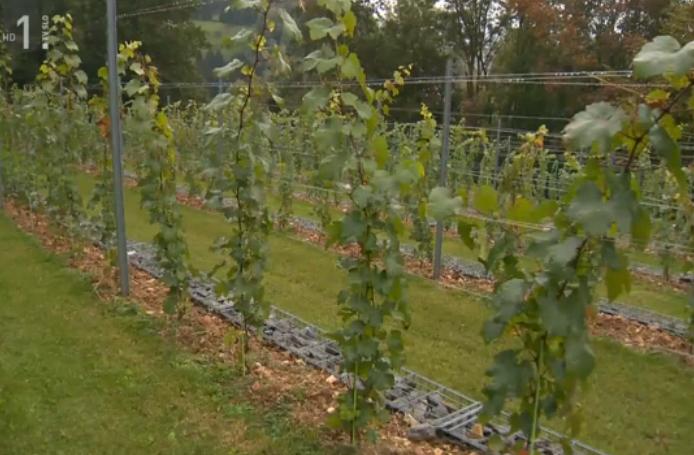The first grapes from the Ljubljana Castle vineyard have been officially picked. The grapes are descendants of the oldest vine in the world, which was brought from Maribor to Ljubljana 26 years ago. Until now it has given fruit every year. A full harvest of the vineyard, which was planted this year on the slopes of Ljubljana Castle, is expected in around three years.
The harvest of the Grajska Žametovka grape variety was accompanied by rain. But the weather did not bother the grape pickers, who only cut off a few grapes from which they will make less than three litres of wine.
"We will first prepare the must juice, and then prepare the wine. When it matures we will bottle it and use it for protocol wine," said Stane Miklavc from the Ljubljana Castle Public Institute.
When the 1,050 vines, which were planted on the sunniest part of the castle slope five months ago, give fruit, the castle expects to produce around 700 litres of wine. The wine will mostly be used for the promotion of Ljubljana. "In 2017 and 2018 we can expect our first grape products, and for the wine we will have to wait until it matures, and that’s around the year 2020," said Franci Čuš from the Agricultural Institute of Slovenia.
The white grapes will be used for Belpin or Chardonnay, while the red grapes for making the Rdečegrajc. "The Rdečegrajc is in fact a translation of the old name Rotburger, which was the first name for this grape variety and the Zweigelt wine," explained ethnologist Janez Bogataj.
The castle is convinced that they will produce good quality wine, but more interesting will be the interweaving stories connected to the noble drink. "If there is no story behind it, we then have cases similar to what happened with Maribor’s Vinag, when excellent wines are being sold at miserable prices," said Bogataj.
When they start pouring the Rdečegrajc into wine glasses they will tell how archeologists, doing excavation work at the Ljubljana Castle, unearthed old stakes dating back around two thousand years. The stakes were positioned in such a way that they could have been the remains of an ancient vineyard.


































































